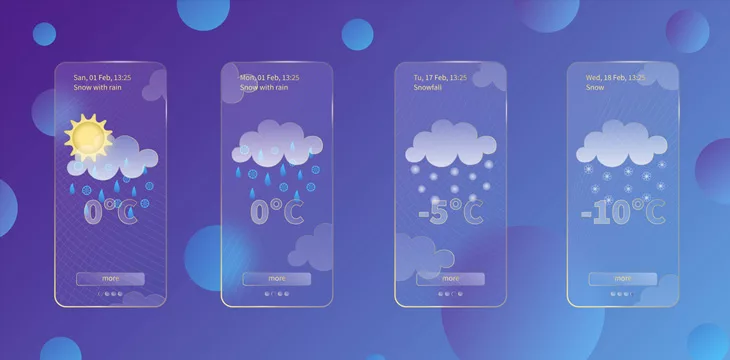|
Getting your Trinity Audio player ready...
|
New research shows that advancements in artificial intelligence (AI) have played a significant role in accurate and efficient weather forecasting. A recent study published in Science Magazine shows that “GraphCast,” a machine learning-based weather prediction model developed by Google DeepMind’s researchers, outperformed traditional weather prediction technologies with a 90% verification rate.
GraphCast AI vs traditional forecasting
The GraphCast model was trained using 39 years of observations from the European Centre for Medium-Range Weather Forecasting (ECMWF). It uses historical data, the two most recent states of Earth’s weather, and other variables from the previous six hours to predict the weather in the next six hours.
In over 1,300 test areas, GraphCast outperformed the traditional ECMWF weather prediction model in more than 90% of cases and predicted the weather with 99% accuracy in Earth’s troposphere—the lowest layer of Earth’s atmosphere.
What put GraphCast on the radar for most meteorologists was when it accurately predicted Hurricane Lee’s landfall in Nova Scotia three days earlier than traditional models could.
While traditional weather simulations attempt to replicate the physics of the atmosphere, the AI behind GraphCast uses neural networks, mapping Earth’s surface into over a million grid points. At each point, the model predicts temperature, wind speed, direction, mean sea-level pressure, and other conditions to draw conclusions about future weather events.
“Conventional wisdom would say using [AI] might not do as well on the rare, unusual stuff. But [GraphCast also] seem[s] to do well on that,” said Peter Battaglia, research director at Google DeepMind (NASDAQ: GOOGL). “We think this also points to the fact that the model is capturing something more fundamental about how the weather actually evolves in time rather than just looking for more superficial patterns in the data.”
Thanks to AI, GraphCast can quickly make inferences that lead to more accurate weather predictions in under a minute using only a small computer, while traditional models require at least an hour and a supercomputer to achieve the same results.
Paving the way for more meteorological models
Excited to see our AI weather model #GraphCast published in @ScienceMagazine! GraphCast is fast & accurate: in 1 minute it generates a 10-day forecast that outperforms the top operational forecasts, including on extreme weather. @GoogleDeepMind’s blog: https://t.co/W5P149aBqA
— Peter Battaglia (@PeterWBattaglia) November 14, 2023
Continued improvements and implementations of AI are bound to reshape the landscape of weather forecasting. As the research from Science Magazine shows, artificial intelligence can lead to increased accuracy in forecasting. With the success of GraphCast being publicized, we are likely to see a surge in meteorological models that integrate AI hitting the market and to foster further advancements in the field, Google DeepMind is making GraphCast open source.
In order for artificial intelligence (AI) to work right within the law and thrive in the face of growing challenges, it needs to integrate an enterprise blockchain system that ensures data input quality and ownership—allowing it to keep data safe while also guaranteeing the immutability of data. Check out CoinGeek’s coverage on this emerging tech to learn more why Enterprise blockchain will be the backbone of AI.
Watch: Artificial intelligence needs blockchain

 02-20-2026
02-20-2026 




